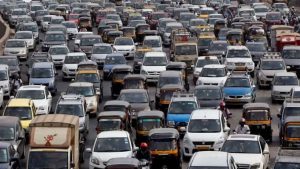 NEWDELHI: The Centre has approved a proposal to raise speed limits in cities and on highways across the country. The new limits would allow cars to go up to 70 kmph in cities and motorcycles up to 60 kmph. However, state governments will retain the power to set lower limits in their jurisdictions, reports said.
NEWDELHI: The Centre has approved a proposal to raise speed limits in cities and on highways across the country. The new limits would allow cars to go up to 70 kmph in cities and motorcycles up to 60 kmph. However, state governments will retain the power to set lower limits in their jurisdictions, reports said.
Union Road Transport and Highways Minister Nitin Gadkari on Wednesday approved the raising of speed limits not just for city roads but also for highways and expressways. The proposal will now be sent to the Law Ministry for vetting before it is formally notified and comes into effect, reports said.
The new system also allows a ‘grace’ of 5 percent, which means if you go over the limit by up to 5 percent, you may be let off with a warning. While it may not be practically possible to hit 70 kmph in most cities, the raise is being made keeping in mind the increasing number of ring roads that are being built.
The Centre has the power to set only the ceilings for speed limits across the country. While state government and local bodies would be able to define lower limits on roads under their control, they cannot exceed the ceiling set by the Centre. In states that have not explicitly defined their own limits, the Centre’s speed limits would automatically come into effect.
The new speed limits will allow cars to go faster by 20 kmph. The speed limit for expressways will be raised to 120 kmph from the existing 100 kmph. The limit for national highways will be increased to 100 kmph from the current 80 kmph.
While the increased limits could help bring down bookings for speeding, it remains to be seen how effective they will actually be. Speed limit enforcement remains poor across the country, and can vary vastly from state to state. The state governments, through their police forces, are the implementing authorities for speed limits. So it lies in the their hands on whether the increase will come hand in hand with high levels of enforcement.
Leave a Reply